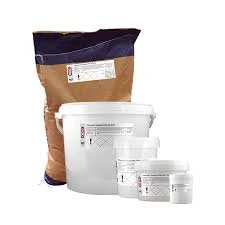
Natural Ingredients for Food Preservation That Enhance Shelf Life and Quality
Natural Preservatives for Food The Green Revolution in Food Preservation
In recent years, the food industry has witnessed a significant shift towards the use of natural preservatives. This transition is largely driven by consumer demand for healthier, more sustainable food options and increased awareness of the potential health risks associated with artificial preservatives. Natural preservatives not only enhance the shelf life of food products but also cater to the growing trend of clean-label eating.
What Are Natural Preservatives?
Natural preservatives are substances derived from natural sources—plants, animals, or minerals—that help extend the shelf life of food by inhibiting microbial growth and oxidation. Unlike their synthetic counterparts, which can sometimes lead to adverse reactions in sensitive individuals, natural preservatives are generally recognized as safe and often come with added nutritional benefits.
Common Types of Natural Preservatives
1. Salt One of the oldest and most widely used natural preservatives, salt works by drawing moisture out of food, making it inhospitable for bacteria. It is commonly used in the preservation of meats, fish, and vegetables.
2. Sugar Similar to salt, sugar acts by reducing water activity. It is often used in jams, jellies, and pickled products, where it not only preserves but also enhances flavor.
3. Vinegar The acidity of vinegar inhibits the growth of bacteria and molds. Its use in pickling vegetables and other foods not only helps preserve them but also adds a tangy flavor.
natural preservatives for food

4. Citrus Extracts Citrus fruits, particularly lemon and lime, contain citric acid and ascorbic acid (Vitamin C), both of which possess antioxidant properties. These make them effective in preventing browning and spoilage in various foods.
5. Herbs and Spices Many herbs and spices, such as rosemary, oregano, and thyme, have natural antimicrobial properties. They are often used to preserve meats and sauces, providing flavor while extending shelf life.
6. Natural Oils Oils, especially essential oils like clove and cinnamon, exhibit strong antimicrobial activity. They can be effective in preserving a range of food products, from baked goods to marinades.
Benefits of Using Natural Preservatives
The advantages of natural preservatives extend beyond merely prolonging shelf life. They often add nutritional value, boost flavor, and align with the growing consumer preference for transparency and sustainability in food production. When consumers know that their food contains natural ingredients, they are more likely to trust the brand and choose their products over those with synthetic additives.
Moreover, natural preservatives tend to have fewer side effects and are less likely to cause allergic reactions compared to artificial preservatives. This makes them a safer choice for diverse populations, including those who are health-conscious or have dietary restrictions.
Conclusion
As the push for healthier food options continues, the role of natural preservatives is becoming increasingly vital in the preservation and safety of our food. Not only do they enhance the longevity of products, but they also cater to the growing trend of clean eating and transparency in food labeling. The future of food preservation undoubtedly lies in embracing nature’s bounty, ensuring that consumers can enjoy safe, wholesome food without compromising their health or values.
-
Understanding Synthetic Rubber OptionsNewsApr.27,2025
-
Trichloroisocyanuric Acid: Essential for Clean and Safe WaterNewsApr.27,2025
-
Sodium Dichloroisocyanurate: Key to Safe Water TreatmentNewsApr.27,2025
-
Sodium Acid Pyrophosphate: Essential in Modern Food ProcessingNewsApr.27,2025
-
Essential Water Treatment ChemicalsNewsApr.27,2025
-
Denatured Alcohol and Its Industrial UsesNewsApr.27,2025
-
The Versatile Uses of Sodium BicarbonateNewsApr.24,2025
Hebei Tenger Chemical Technology Co., Ltd. focuses on the chemical industry and is committed to the export service of chemical raw materials.
-

view more DiethanolisopropanolamineIn the ever-growing field of chemical solutions, diethanolisopropanolamine (DEIPA) stands out as a versatile and important compound. Due to its unique chemical structure and properties, DEIPA is of interest to various industries including construction, personal care, and agriculture. -

view more TriisopropanolamineTriisopropanolamine (TIPA) alkanol amine substance, is a kind of alcohol amine compound with amino and alcohol hydroxyl, and because of its molecules contains both amino and hydroxyl. -

view more Tetramethyl Thiuram DisulfideTetramethyl thiuram disulfide, also known as TMTD, is a white to light-yellow powder with a distinct sulfur-like odor. It is soluble in organic solvents such as benzene, acetone, and ethyl acetate, making it highly versatile for use in different formulations. TMTD is known for its excellent vulcanization acceleration properties, which makes it a key ingredient in the production of rubber products. Additionally, it acts as an effective fungicide and bactericide, making it valuable in agricultural applications. Its high purity and stability ensure consistent performance, making it a preferred choice for manufacturers across various industries.











